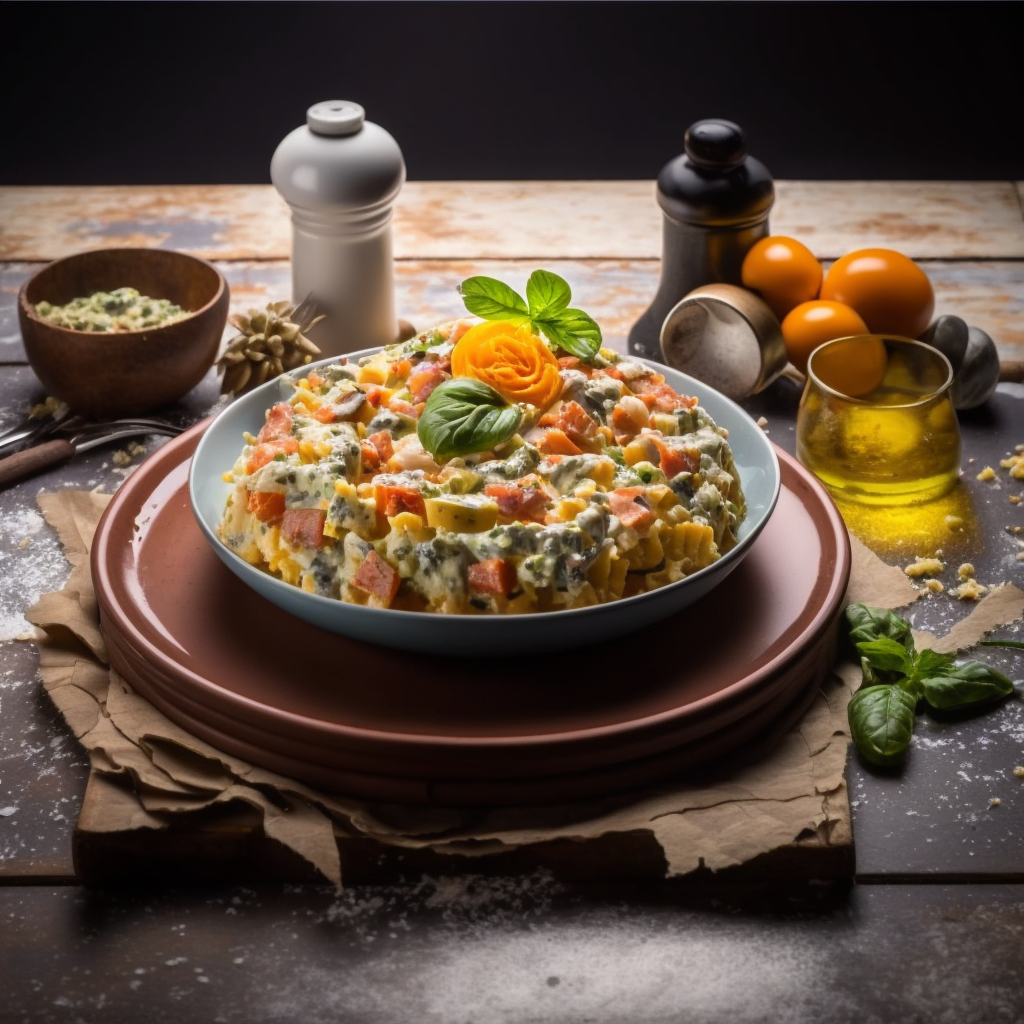
Salad Olivier is a dish that has become an essential part of the New Year and holiday tables for many people in Russia and beyond. However, few have thought about how and when this popular salad originated.
The history of Salad Olivier begins in late 19th century Moscow, where a restaurant named "Ermitage" was opened on Tverskaya Street. Its owner, Lucien Olivier, was a French chef who sought to introduce new dishes and combinations to Russian cuisine.
One of the most famous and popular recipes that Lucien Olivier came up with was a salad that would later bear his name - Salad Olivier. It was designed as an appetizer that would satisfy even the most sophisticated palates.
The original recipe for Salad Olivier was quite complex, consisting of shrimp, langoustines, olives, capers, cucumbers, mushrooms, and mustard. Despite its taste and popularity, the dish was too complicated for mass production.
Therefore, Lucien Olivier decided to simplify the recipe for the salad. Instead of shrimp and langoustines, he began to use boiled sausage, and for vegetables - potatoes and carrots. These changes not only simplified the recipe, but also made the salad more accessible for production.
The new recipe for Salad Olivier was embraced by Russians with enthusiasm and quickly became one of the most popular dishes in the country. Today, Salad Olivier is a symbol of Russia and one of the most famous dishes of Russian cuisine.
Salad Olivier has different recipes depending on the region. In some regions, ham or ham is used instead of sausage, and in some - pickled cucumbers or fresh tomatoes are added. Many people also add peas, green onions, eggs or chicken to the salad.
Despite the fact that recipes for Salad Olivier can vary, all of them retain the main components - boiled sausage, potatoes, carrots, pickled cucumbers, mayonnaise, and green onions. These ingredients are an integral part of Salad Olivier, allowing it to maintain its traditional taste and authenticity.
Salad Olivier has become not only a culinary masterpiece, but also a symbol of many traditions and cultural holidays. In Russia, it is usually served on festive tables, such as New Year's, Christmas, Easter, weddings and birthdays. Regardless of any modifications or adaptations to the recipe, Salad Olivier remains a beloved dish that can be found on many tables and celebratory events throughout Russia and beyond.